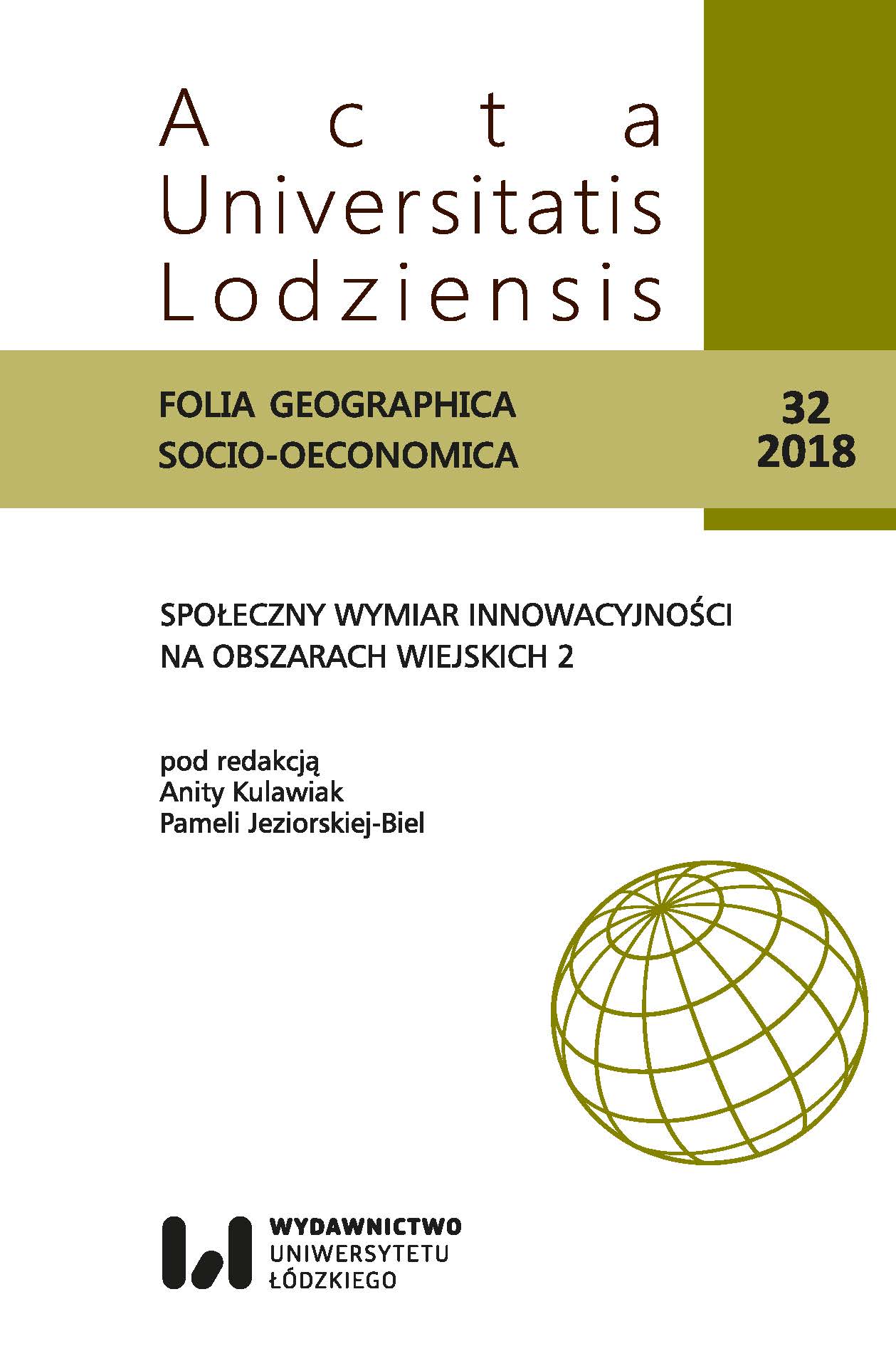Programowanie sanacji przestrzeni wiejskiej. Autorskie mechanizmy planistyczne na rzecz zrównoważonego kształtowania obszarów wiejskich
Programming of rural space sanation. Author planning mechanisms for sustainable shaping of rural areas
Author(s): Robert Barełkowski, Bartosz WojtyraSubject(s): Agriculture, Regional Geography, Rural and urban sociology, Socio-Economic Research
Published by: Wydawnictwo Uniwersytetu Łódzkiego
Keywords: spatial planning; rural areas; strategic investment resources; FAST method; planowanie przestrzenne; obszary wiejskie; strategiczne rezerwy inwestycyjne; metoda FAST
Summary/Abstract: In the first part of the paper, the authors diagnose problems of spatial planning process in Poland being the result of the implementation of effective law. They identify how practice affected by this law generates land use conditions in the rural space. Common situation is that there is apparent lack of integration of planning and strategic documents affecting spatial policies within one territorial unit (commune) and their execution. This deficiency along with inefficient regulations are exploited and in conjunction with other phenomena like increased and uncontrolled development pressure (e.g. by property owners), particularization of prioritization in issuing administrative decisions related to land use, predatory economy of agricultural land, produce unsatisfactory qualities of the built environment. Also, social participation in spatial planning system is often limited and doesn’t meet specific objectives. In the second part, the authors use case studies in order to propose the method applied, as a part of research and related experiment, to the planning process. This study is immersed in particular, practical experience. The method encompasses: scenario-based approach (as part of the P.R.S. method), monitoring and evaluation of spatial policy in communes, introduction of multi-criteria analyses. These mechanisms allow for allowing to identify and understand the conditions and background of activities for spatial policy and aim to improve planning documents. In the summary, the authors construct a list of recommendations regarding programming of rural development planning. They emphasize the need for a stronger integration of spatial regulation on different levels of management of planning process. They postulate to amplify the integration of planning documents even if it means some degree of reorientation of initially stipulated hierarchy. One of key issues is the introduction of constant and continuous monitoring of spatial policy, preceding decision-making. The solution could be seen as a multi-criteria assessment of spatial conditions and directions, development studies should be based on. Public participation is depicted also as integrated and permeate community share in decision-making focused on clearly defined objectives, countering the conflicts arising from particularism of inhabitants. Authors attempt to define their interpretation of holistic approach to planning studies and documents using broad perspective, with recognition of necessity to acknowledge the uniqueness of every area or site, resulting in respecting different characteristics by relevant establishing of different planning objectives. // W pierwszej części artykułu autorzy diagnozują problemy procesu planowania przestrzennego w Polsce wynikające z obowiązującego systemu prawnego oraz identyfikują ich efekty w przestrzeni wiejskiej. W drugiej części skupiają się na prezentacji trzech wątków badawczych, stanowiących propozycję aplikacyjnych metod wdrażanych eksperymentalnie do procesu planistycznego, bazując na doświadczeniach praktycznych. W podsumowaniu konstruują listę rekomendacji dotyczących programowania sanacji zagospodarowania obszarów wiejskich.
Journal: Acta Universitatis Lodziensis. Folia Geographica Socio-Oeconomica
- Issue Year: 32/2018
- Issue No: 2
- Page Range: 31-49
- Page Count: 19
- Language: Polish

